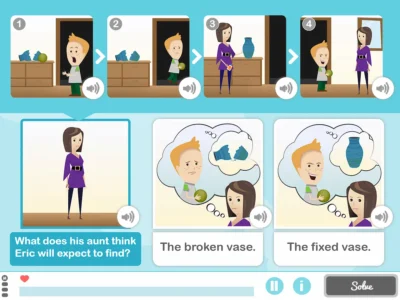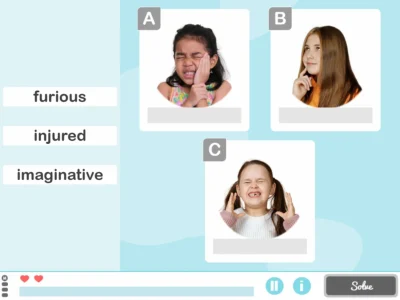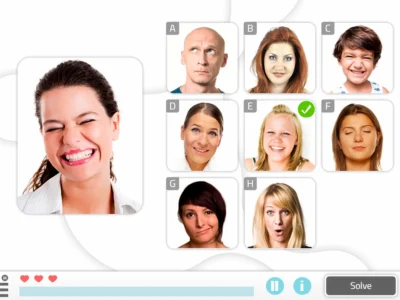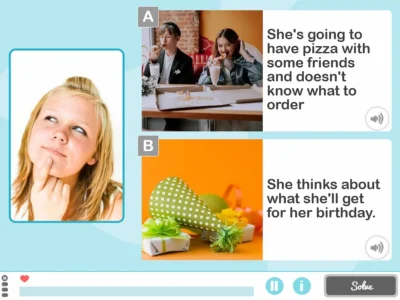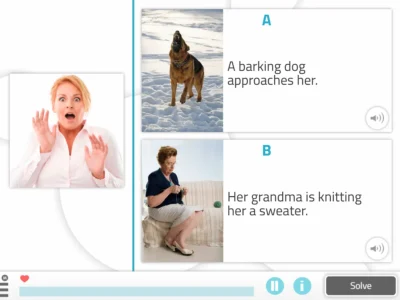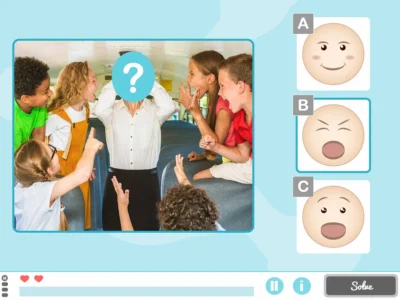Social skills
Social skills are the set of behavioral strategies and the ability to implement those behaviors that help solve a social situation effectively; in a manner acceptable to both an individual and the social context in which the individual finds him/herself.
They allow for feelings, attitudes, desires, opinions or rights to be expressed appropriately in relation to a particular situation, and at the same time respect the conduct of others. Thus, they improve our interpersonal relationships, make us feel good, help us to get what we want, and prevent others from interfering in the achievement of our goals.
These behaviors are necessary to interact with and relate to others in an effective and mutually satisfying manner.
Some of them are:
- Empathy. The ability to put oneself in the place of another person.
- Emotional intelligence. The ability to monitor one’s own and others’ feelings, to discriminate among them, and to use this information to guide one’s thinking and action (Salovey & Mayer, 1990).
- Assertiveness. The ability to state what one wants in a clear, direct, and honest manner without hurting anyone’s feelings or underestimating anyone’s worth, only defending one’s personal rights.
- Listening skills. The ability to listen carefully, attentively, and understanding what the other person wants to say and then communicating that the message has been received.
- Capacity to communicate feelings and emotions. The ability to express one’s positive or negative feelings in an appropriate manner to others.
- Capacity to define a problem and evaluate solutions. The ability to analyze a given situation by taking into account all the objective elements, as well as the feelings and needs of every individual involved.
- Negotiation. The communication ability directed towards finding a solution that is satisfactory to all parties.
- Emotional regulation. The ability to adjust the expression of emotion to the environment.
- Capacity to apologize. The ability to be aware of mistakes made and to acknowledge them.
- Recognition and defense of individual rights and the rights of others. The ability to be aware of our rights and those of others and defend them appropriately.
Why are social skills important?
Social skills are a set of behaviors that allow us to socialize with others in a satisfactory manner, so they are essential in any environment (with family, at work, in the street, etc.). Adequate execution of these skills is beneficial for learning how to express oneself and to understand others, to take into account everyone’s needs and interests, to try and find the most satisfactory solution for everyone when facing a problem, or to be supportive. All of these behaviors are essential for living in society.
Social Skill News, Articles:
Activities for Working on Theory of Mind with Children
Today we present the expansion and optimization of three activities to work on Theory of Mind (ToM) with children. Due to their high usage, seven more worksheets have been added to the activities What do they Think?, What do they Expect to Find? and What do they Believe other People Think? In addition to adding …
Worksheet for teaching emotional intelligence to children: Which photo best fits the word?
Today we are launching a new worksheet to work on emotional intelligence with children: Which photo best fits the word? We also included an improvement in the activity Copy the Letters thanks to a client’s suggestion. If some time ago we presented the worksheet What are they feeling? today it’s the turn of the exercise …
Social cognition activities for working with adults
In this article we propose four social cognition activities for adults so that users can work on how Relating with other People with people appropriately. Social cognition activities 1. Word-Emotion Association The first of the social cognition activities is Word-Emotion Association and is used to work on Emotion recognition. What does it involve? It consists of recognizing the …
Activity to learn how to express emotions in each situation
We present a new child social cognition exercise. When would you show the following emotion?, is an activity to learn how to express emotions in each situation. What does it involve? Children must be able to determine in which situations it is appropriate to react in the way shown in the images. Below, we show …
Social cognition or how to understand people: social cognition exercises
Do you know which cognitive function allows us to interpret other people’s emotions? Can you recognize which function is responsible for our ability to understand what others think in certain situations? Or, could you identify why we behave in a socially appropriate way in certain circumstances? We do all of this thanks to social cognition, …
Activity to identify emotions: Guess the face?
September is back and with it we announce a new children’s exercise. Specifically, Guess the face, an activity to identify emotions. What does it involve? This is a worksheet in which a situation is presented with one or more characters and one of them has their face covered. The aim is for the child to …
